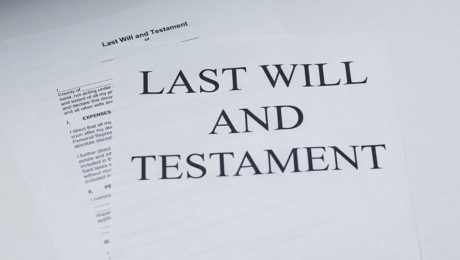McLarty Wolf adheres to all provincial health recommendations in operating its office in downtown Vancouver. Our lawyers and paralegals both work in our office and at times remotely to ensure our clients’ needs are satisfied. We continue to attend court hearings, mediations and examinations for discovery. We are also available for client meetings at our office, with appropriate safeguards, or via video conference.
Registrar’s Hearing-Passing of Accounts
This is the second blog in the series relating to the passing of accounts of a representative of an estate. Please see our first blog that discusses the duty of a personal representative to pass their accounts and the purpose of the passing of accounts more generally. Reference to the Registrar for the Passing of
The Final Phase in Administering an Estate: The Duty to Account and the Passing of Accounts
A Personal Representative’s Duty to Account When a person passes away, their will typically names someone responsible for carrying out the will’s instructions. In the completion of this responsibility, a personal representative – sometimes called a trustee, executor, or administrator – has a “duty to account”. This means that they must create an inventory and
- Published in Real Estate and Property Disputes, Trust and Estate Litigation
WESA Section 58 – Curing Deficiencies in an Invalid Will
While it is always best for a person to record their intentions about who will inherit their property after their death with a will prepared by a lawyer or notary, many people will communicate their intentions in less formal ways. In some situations, informal documents like a handwritten will, or even an electronic will such
- Published in Real Estate and Property Disputes, Trust and Estate Litigation
Section 151 of the Wills, Estates and Succession Act: Bringing a Claim as a Beneficiary on Behalf of an Estate
When someone dies, it falls to their personal representative, i.e. the executor or administrator of their estate, to commence legal claims on behalf of the estate that the deceased could have advanced during their lifetime. If the deceased’s estate has a strong claim against another party that would increase the estate’s assets, the personal representative
- Published in Real Estate and Property Disputes, Trust and Estate Litigation
How to Remove an Executor of an Estate
It is not uncommon for executors to tire of their responsibilities including responding to the demands of beneficiaries and decide to resign from their duties as executors. On the other hand, beneficiaries may tire of the executor’s delays in administering and distributing an estate or more seriously, take the view that the executor is acting
- Published in Trust and Estate Litigation
Who is a Spouse Under WESA?
When someone dies without a will, that person is said to have died “intestate” and their estate must be distributed according to the BC Wills, Estates and Succession Act (WESA). According to Section 20 of WESA, the estate of a spouse who has died without a will and with no surviving descendants must be distributed entirely
- Published in Trust and Estate Litigation
Are Will Variation Claims Worthwhile?
While the Wills, Estates and Succession Act (WESA) of British Columbia has provided a framework for seeking a variation of the distribution of an estate that is set down in a will written by a person who has since died, (as well as challenging the validity of a will on the grounds of undue influence
- Published in Trust and Estate Litigation
The Truth About Will Contests
The death of a loved family member is emotionally difficult, perhaps an even traumatic event. That grief can be compounded if you learn that your parent or spouse treated you unfairly in their will or if you have concerns regarding the circumstances of the making of the will. Although it is difficult to be objective
- Published in Trust and Estate Litigation
Can a Power of Attorney Change a Will After a Death?
A power of attorney is a legally binding document giving a person some authority to act on behalf of another. There are very strict limitations as to what this person can and cannot do. If you believe someone has changed a will or has made changes he or she is not authorized to do on
- Published in Trust and Estate Litigation
When Can a Will Be Contested?
The death of a loved family member is an emotionally difficult, perhaps even traumatic event. That grief can be compounded if you learn that your parent or spouse treated you unfairly in their will or if you have concerns regarding the circumstances of the making of the will. Although it is difficult to be objective
- Published in Trust and Estate Litigation











